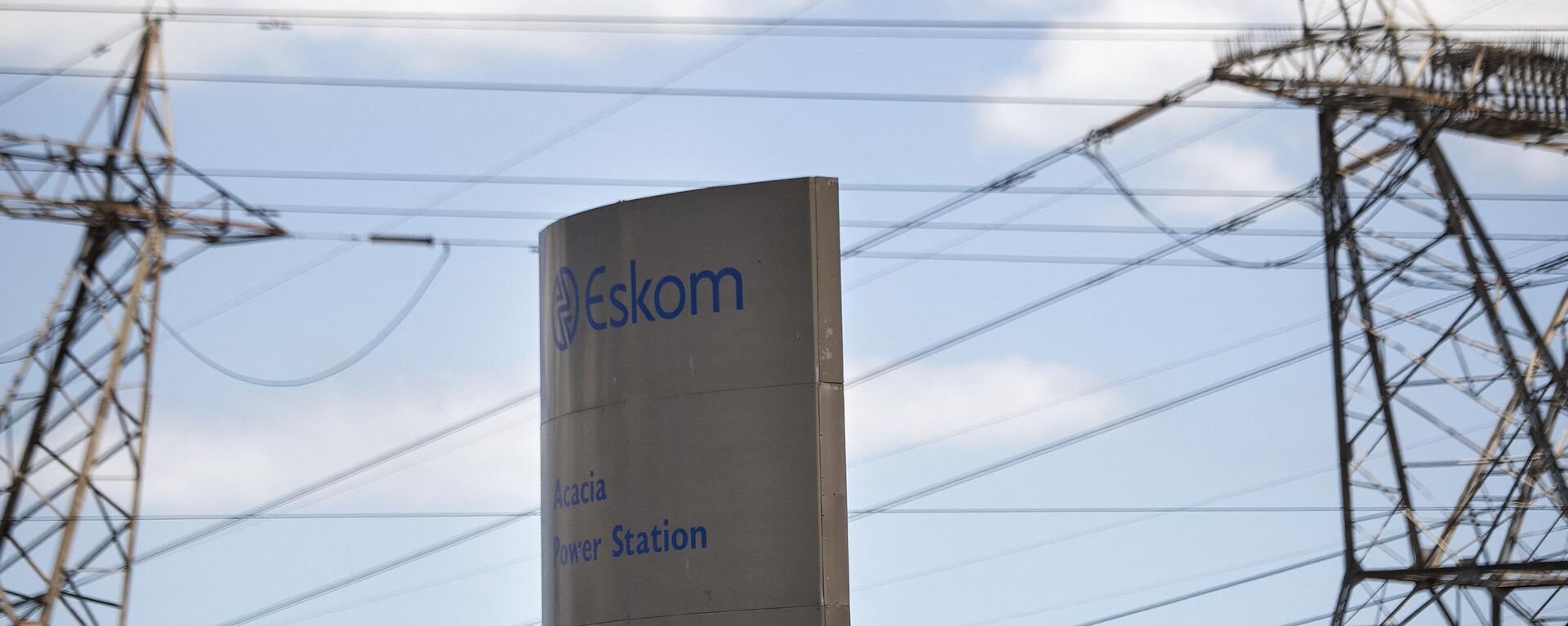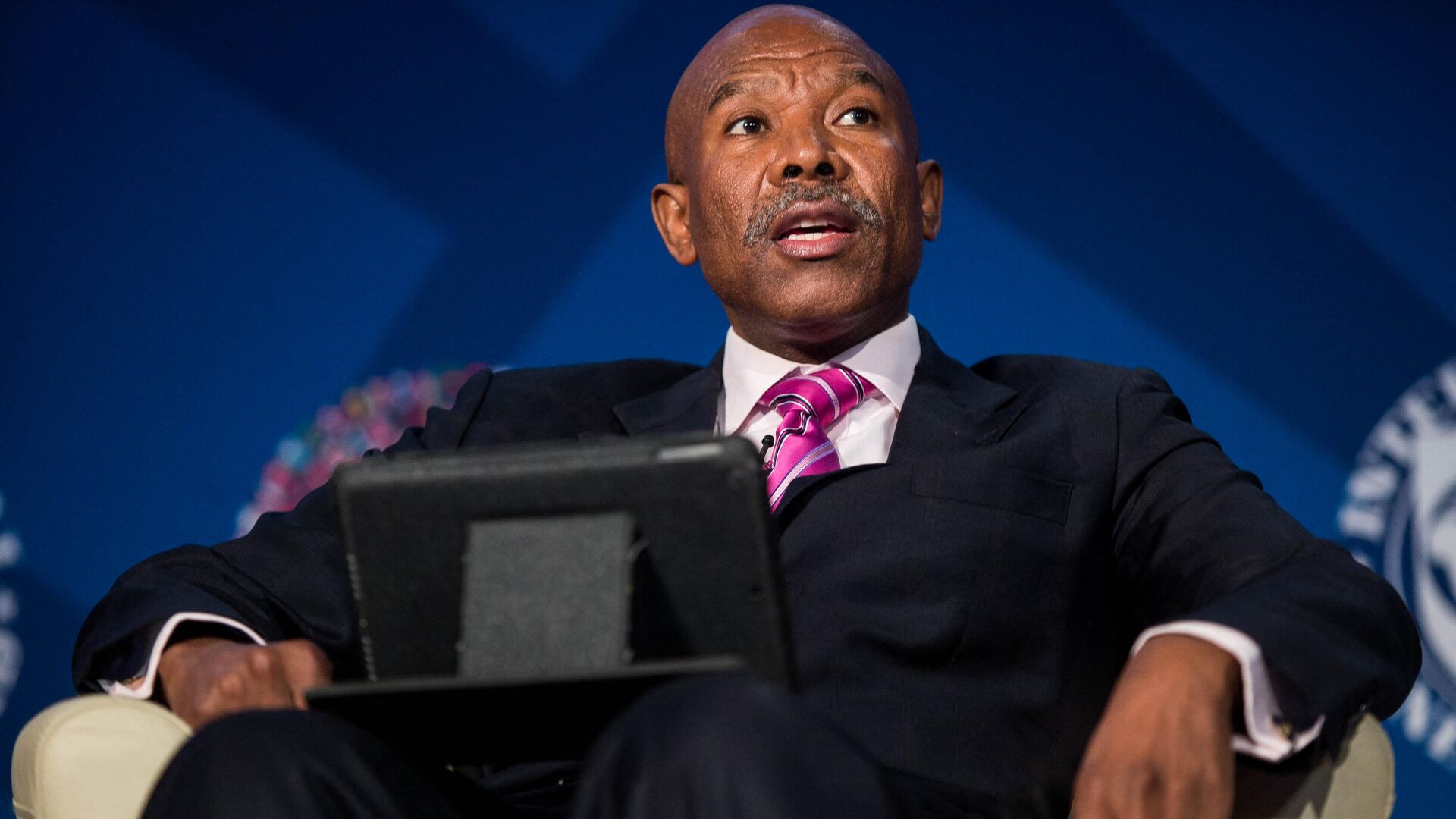https://sputnikglobe.com/20230413/south-africas-central-bank-governor-calls-for-deregulation-of-energy-transport-sectors-1109393216.html
South Africa's Central Bank Governor Calls for Deregulation of Energy, Transport Sectors
South Africa's Central Bank Governor Calls for Deregulation of Energy, Transport Sectors
Sputnik International
South Africa’s Reserve Bank Governor Lesetja Kganyago called on the government to implement fundamental reforms to the country's macroeconomic policies aimed at boosting economic growth, and mitigating exchange rate volatility.
2023-04-13T05:55+0000
2023-04-13T05:55+0000
2023-04-13T05:55+0000
africa
southern africa
south africa
central bank
fiscal policy
inflation
state companies
deregulation
crisis
https://cdn1.img.sputnikglobe.com/img/07e7/04/0c/1109394579_0:0:3072:1728_1920x0_80_0_0_ab225da886d199102e6be9915717646f.jpg
The governor of South Africa’s Reserve Bank (SARB), Lesetja Kganyago, called on the government to implement fundamental reforms to the country's macroeconomic policies aimed at boosting economic growth, mitigating exchange-rate volatility, and reducing risks, the media has reported. The central bank chief delivered his remarks on possible changes to the government's policies during his speech at the Peterson Institute for International Economics in Washington. In particular, the governor proposed introducing structural reforms, and deregulating the country's transport and power sectors.Apart from that, he called for the inflation target to be lowered, stating that the figure of 3 percent, which is the bottom of the present range, would be a "major benefit" to South Africa's fiscal policy, and would help to achieve sustainable economic growth.He noted that, even though the central bank's measures aimed at achieving better inflation outcomes - including those that go beyond traditional monetary policy - didn't find much support, they did help "to foster a better public discussion about the challenges holding back our economy". Since November 2021, in response to the global inflation shock, the bank has increased the key interest rate by 4.25 percent.South Africa's public finances have reportedly been hit by years of corruption. The situation is aggravated by the rising debt caused by a 254Bln rand ($13.8Bln) relief package for state utility firm Eskom. In February, the South African National Treasury stated that the government had decided to take on a major part of Eskom's 423Bln rand ($ 23Bln) debt over the next three years to enable the energy business to pay down its debt and interest obligations. The company's inability to meet demand has caused nationwide power rationing, which in turn has undermined the country's economic-growth prospects, and fueled inflation, according to South Africa's officials.
https://sputnikglobe.com/20230224/south-africas-eskom-appoints-chief-financial-officer-calib-cassim-as-interim-ceo-1107766530.html
africa
southern africa
south africa
Sputnik International
feedback@sputniknews.com
+74956456601
MIA „Rossiya Segodnya“
2023
News
en_EN
Sputnik International
feedback@sputniknews.com
+74956456601
MIA „Rossiya Segodnya“
Sputnik International
feedback@sputniknews.com
+74956456601
MIA „Rossiya Segodnya“
southern africa, south africa, south africa’s reserve bank (sarb), macroeconomic policies, fiscal policy, monetary policy, inflation target, reforms, south african reserve bank governor lesetja kganyago
southern africa, south africa, south africa’s reserve bank (sarb), macroeconomic policies, fiscal policy, monetary policy, inflation target, reforms, south african reserve bank governor lesetja kganyago
South Africa's Central Bank Governor Calls for Deregulation of Energy, Transport Sectors
Several of the country's nationalized industries have long had allegations of corruption levelled against them by the general public and the government, and have subsequently failed to provide services. Furthermore, the indebted firms are putting pressure on South Africa's struggling public finances.
The governor of South Africa’s Reserve Bank (SARB), Lesetja Kganyago, called on the government to implement fundamental reforms to the country's macroeconomic policies aimed at boosting economic growth, mitigating exchange-rate volatility, and reducing risks, the media has reported.
The central bank chief delivered his remarks on possible changes to the government's policies during his speech at the Peterson Institute for International Economics in Washington. In particular, the governor proposed introducing structural reforms, and deregulating the country's transport and
power sectors.
"With the rise in debt created by our efforts to confront weakening growth and failures of state enterprises, there is little chance of improving credit quality without new rules and more strategic use of macroeconomic policy," Kganyago is quoted as saying.
Apart from that, he called for the inflation target to be lowered, stating that the figure of 3 percent, which is the bottom of the present range, would be a "major benefit" to South Africa's fiscal policy, and would help to achieve sustainable economic growth.
According to Kganyago, it will reduce the risks of a rise in the real exchange rate that usually indicates loss in trade competitiveness. Moreover, this inflation target, he noted, would reduce the cost of loan servicing for the country's public sector, which is now burdened by excessive debt.
He noted that, even though the central bank's measures aimed at achieving better inflation outcomes - including those that go beyond traditional monetary policy - didn't find much support, they did help "to foster a better public discussion about the challenges holding back our economy". Since November 2021, in response to the global
inflation shock, the bank has increased the key interest rate by 4.25 percent.

24 February 2023, 11:36 GMT
South Africa's public finances have
reportedly been hit by years of corruption. The situation is aggravated by the rising debt caused by a 254Bln rand ($13.8Bln) relief package for state utility firm Eskom. In February, the South African National Treasury stated that the government had decided to take on a major part of Eskom's 423Bln rand
($ 23Bln
) debt over the next three years to enable the energy business to pay down its debt and interest obligations.
The company's inability to meet demand has caused nationwide power
rationing, which in turn has undermined the country's economic-growth prospects, and fueled inflation, according to South Africa's officials.



